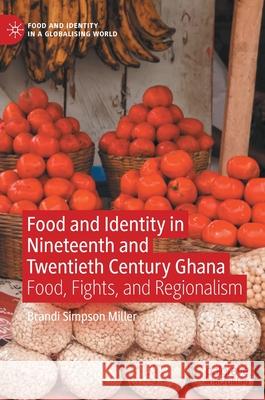Food and Identity in Nineteenth and Twentieth Century Ghana: Food, Fights, and Regionalism » książka
topmenu
Food and Identity in Nineteenth and Twentieth Century Ghana: Food, Fights, and Regionalism
ISBN-13: 9783030884024 / Angielski / Twarda / 2022 / 336 str.
Food and Identity in Nineteenth and Twentieth Century Ghana: Food, Fights, and Regionalism
ISBN-13: 9783030884024 / Angielski / Twarda / 2022 / 336 str.
cena 484,18
(netto: 461,12 VAT: 5%)
Najniższa cena z 30 dni: 462,63
(netto: 461,12 VAT: 5%)
Najniższa cena z 30 dni: 462,63
Termin realizacji zamówienia:
ok. 16-18 dni roboczych.
ok. 16-18 dni roboczych.
Darmowa dostawa!
Kategorie:
Kategorie BISAC:
Wydawca:
Springer Nature Switzerland AG
Seria wydawnicza:
Język:
Angielski
ISBN-13:
9783030884024
Rok wydania:
2022
Ilość stron:
336
Waga:
0.54 kg
Wymiary:
21.01 x 14.81 x 1.91
Oprawa:
Twarda
Wolumenów:
01
Dodatkowe informacje:
Wydanie ilustrowane











